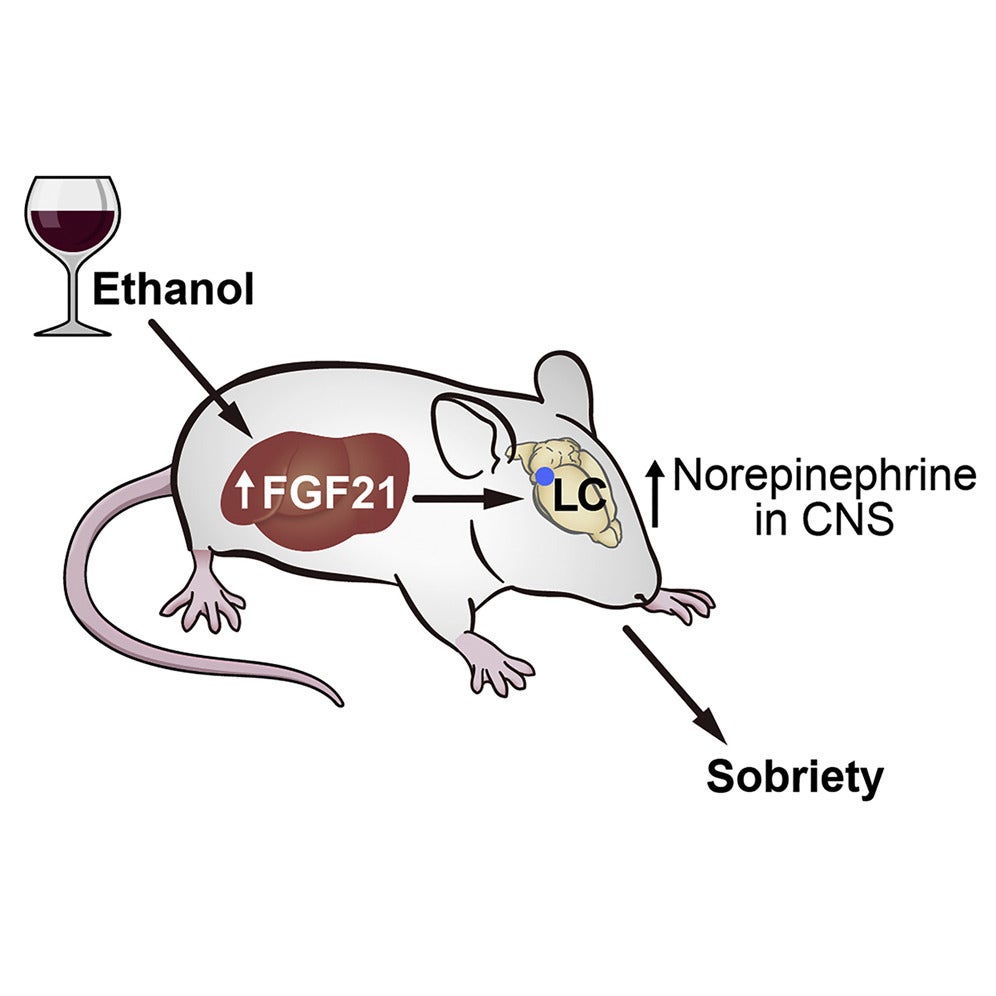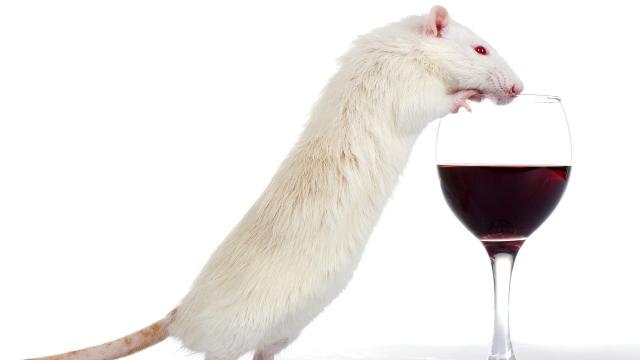A team of scientists appears to be on track toward developing an effective treatment for drunkenness. In research out this week, they were able to quickly sober up drunk mice by boosting their levels of a naturally produced hormone called FGF21. More research will need to be done, but the team believes that FGF21 could someday be used to treat acute episodes of alcohol poisoning.
The study was led by scientists from the University of Texas Southwestern Medical Centre. For years, they and others have been studying FGF21 as a potential bulwark against alcohol. The hormone is produced by the liver and plays a role in helping us process certain foods, especially booze. Studies have found that alcohol is perhaps the most potent inducer of FGF21 production in both mice and humans, for instance. And the team’s past research has shown that it increases the urge in mice to drink water while intoxicated — a measure that would help prevent alcohol-related dehydration. Some research has even suggested it can actively suppress the desire for alcohol.
In their latest work, published Tuesday in Cell Metabolism, the team compared the outcomes of mice bred without the ability to produce FGF21 to regular mice after being given a single binge dose of alcohol. They also wanted to see what would happen if they gave regular mice an extra shot of FGF21 while drunk. Drunkenness here was defined as the loss of the “righting reflex,” or the mouse’s ability to get upright after being placed on their back.
Mice in both groups broke down the alcohol in their system at the same rate. But those without FGF21 stayed drunk for longer than the normal mice. And when the researchers gave the conked-out mice extra FGF21, they sobered up an average hour-and-a-half faster than the control drunk mice. The team’s work also indicates that FGF21’s sobering effect comes from how it activates a specific part of the brain that controls alertness, known as the noradrenergic nervous system.

“We’ve discovered that the liver is not only involved in metabolizing alcohol but that it also sends a hormonal signal to the brain to protect against the harmful effects of intoxication, including both loss of consciousness and coordination,” study senior author and biochemist Steven Kliewer told Gizmodo. “We’ve further shown that by increasing FGF21 concentrations even higher by injection, we can dramatically accelerate recovery from intoxication.”
Of course, these results are based on mice, so it’s possible that giving extra FGF21 to drunk humans wouldn’t provide the same dramatic benefit. But if more studies do support the team’s findings, including in humans, then FGF21 could very well emerge as a fast-acting treatment against life-threatening intoxication. The hormone has already been studied in clinical trials for other potential uses, adding reassurance that it could safely be taken as a medicine.
“Our studies suggest that FGF21 might be useful for treating the many patients who come into emergency rooms with acute alcohol poisoning,” Kliewer said. “Increasing alertness and wakefulness would be helpful both for preventing them from choking on their own vomit and for speeding up evaluation and treatment of other injuries.”
The team next plans to figure out the exact pathways in the brain that FGF21 activates when acting as a hormonal cold shower.
